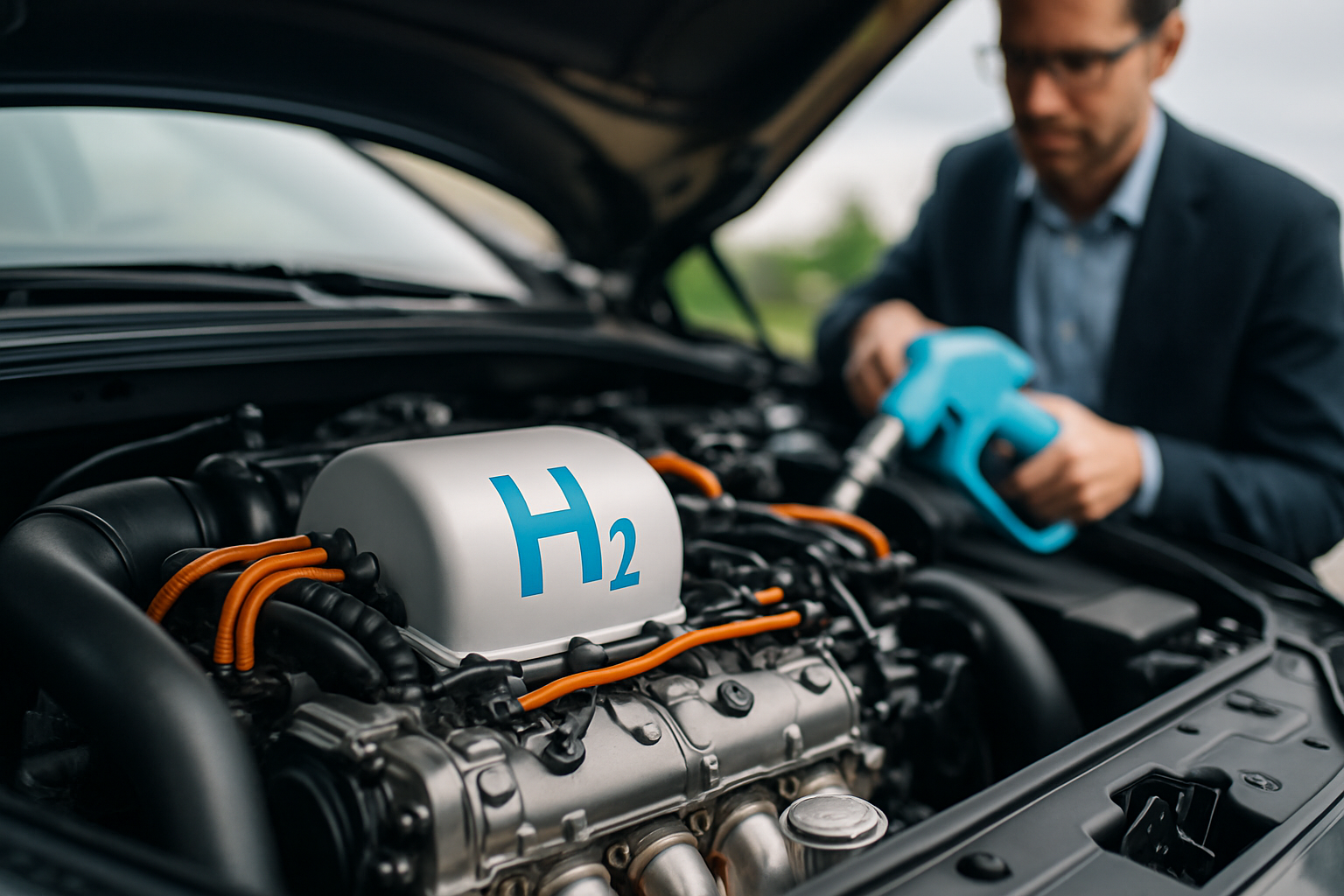The Unexpected Rise of Hydrogen Internal Combustion Engines
In a world increasingly focused on electric powertrains, an unexpected contender is emerging from the shadows of automotive history. Hydrogen internal combustion engines, once relegated to the realm of experimental curiosities, are now finding new life as a potential bridge between traditional combustion technology and zero-emission transportation. This resurgence is capturing the attention of automotive engineers, environmentalists, and industry analysts alike, prompting a reevaluation of hydrogen's role in the future of mobility.

The 1970s saw a brief resurgence of interest in hydrogen engines, spurred by the oil crisis and growing environmental concerns. Automakers like BMW and Mazda experimented with hydrogen-powered vehicles, but the technology faced significant challenges in storage, infrastructure, and efficiency. As a result, hydrogen fell out of favor once again, this time overshadowed by the promise of battery electric vehicles.
The Unexpected Comeback
Fast forward to the present day, and hydrogen internal combustion engines are making an unexpected comeback. This resurgence is driven by several factors, including advancements in hydrogen production and storage technologies, the need for rapid decarbonization in heavy-duty transportation, and the desire to leverage existing manufacturing infrastructure.
Major players in the automotive industry, including Toyota, Cummins, and JCB, are investing heavily in hydrogen combustion technology. These companies see potential in hydrogen engines as a complement to fuel cell and battery electric solutions, particularly in applications where long range, quick refueling, and high power output are crucial.
The Technical Advantages of Hydrogen Combustion
Hydrogen internal combustion engines offer several unique advantages over both traditional fossil fuel engines and other zero-emission technologies. For one, they can achieve near-zero emissions, producing only water vapor and trace amounts of nitrogen oxides. This makes them significantly cleaner than their gasoline or diesel counterparts.
Moreover, hydrogen engines can be adapted from existing internal combustion engine designs, allowing manufacturers to leverage their current production facilities and expertise. This potential for rapid deployment and scalability is particularly attractive in sectors like commercial trucking, marine transport, and off-highway equipment, where the transition to battery electric powertrains faces significant hurdles.
Overcoming the Challenges
Despite its potential, hydrogen combustion technology still faces several challenges. The most significant is the issue of hydrogen production and distribution. While hydrogen is the most abundant element in the universe, producing it in a clean and cost-effective manner remains a hurdle. However, recent advancements in green hydrogen production, using renewable energy to split water through electrolysis, are making this process more viable.
Another challenge is onboard hydrogen storage. Hydrogen’s low energy density by volume requires high-pressure tanks or cryogenic storage systems, which can be bulky and expensive. Engineers are working on advanced storage solutions, including metal hydrides and carbon nanotubes, which could dramatically improve storage efficiency.
Real-World Applications and Future Prospects
The potential applications for hydrogen internal combustion engines are vast. In the heavy-duty trucking sector, companies like Cummins are developing hydrogen engines that promise long range and quick refueling times, addressing two of the main concerns with battery electric trucks. In the agricultural sector, JCB has unveiled a hydrogen-powered excavator, demonstrating the technology’s potential in off-highway equipment.
Looking to the future, hydrogen combustion engines could play a significant role in decarbonizing sectors that are difficult to electrify. This includes long-haul aviation, where the power-to-weight ratio of batteries remains a significant challenge. Some aerospace companies are already exploring hydrogen combustion for aircraft engines, potentially revolutionizing the aviation industry.
The Road Ahead
As the automotive world continues its march towards zero-emission technologies, hydrogen internal combustion engines represent an intriguing alternative path. By combining the familiarity and versatility of traditional engines with the clean-burning properties of hydrogen, this technology could bridge the gap between our fossil fuel present and our zero-emission future.
While challenges remain, the unexpected resurgence of hydrogen combustion engines serves as a reminder of the importance of diverse approaches in tackling climate change. As we move forward, it’s clear that the future of transportation will be shaped not by a single solution, but by a mosaic of technologies working in harmony to create a cleaner, more sustainable world.






